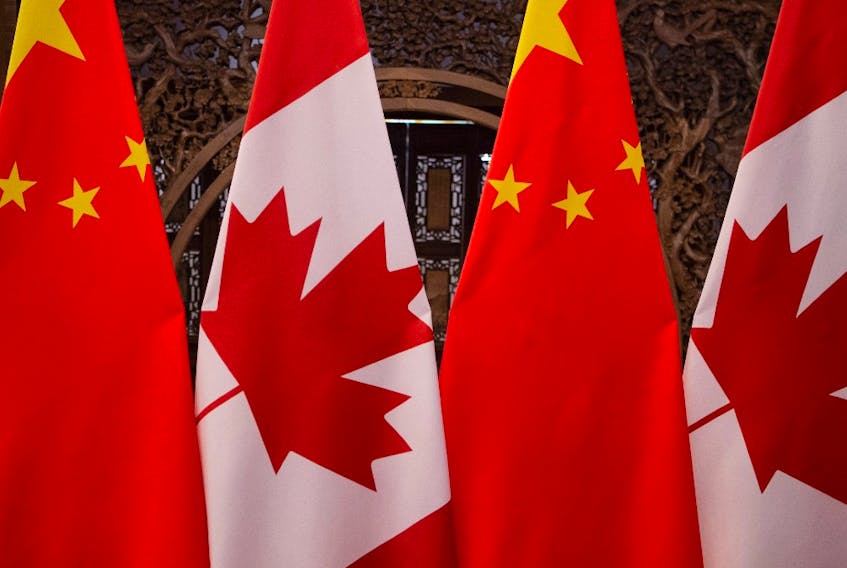A Canadian has been detained in eastern China, a government official confirmed Sunday, amid a deepening diplomatic row between Beijing and Ottawa.
But the reason for the arrest remained a mystery.
“Global Affairs Canada is aware of the detention of a Canadian citizen in Yantai, China,” a Global Affairs Canada spokesman said in an email.
“Canadian officials are providing consular assistance to the Canadian citizen.”
The spokesman would not provide any additional information, including the identity of the Canadian or whether the detention might be related to the recent arrests of more than a dozen foreigners in another part of eastern China.
Last week, Chinese authorities in Xuzhou, about 600 kilometres southwest of Yantai, announced they had arrested 19 people — including seven foreign teachers and nine foreign students — on suspicion of drug use.
Adam Bickelman, a spokesman for EF Education First, a Swiss-based company that organizes study abroad trips and cultural exchanges, confirmed in an email Sunday that the seven teachers worked for the company and that the company was taking the allegations very seriously and co-operating with authorities. He declined to provide a list of the teachers’ nationalities.
However, Bickelman said it did not appear the arrest of the Canadian was linked to the arrest of the foreigners in Xuzhou.
“My understanding is that the two incidents are unrelated,” he wrote.
The British embassy did confirm that four of its citizens were among the teachers and students arrested in Xuzhou, according to The Associated Press.
The arrest of the Canadian comes at a time of worsening diplomatic relations between Canada and China.
It all started last December when Meng Wanzhou, the chief financial officer of Chinese tech giant Huawei, was arrested in Vancouver on a warrant issued by the United States, where she faces fraud charges. Meng remains under house arrest.
Shortly after Meng’s arrest, China, in what was seen widely as a retaliatory move, detained two Canadians — businessman Michael Spavor and former diplomat Michael Kovrig — on allegations of spying. Canada called their detentions “arbitrary.”
In recent months, the feud has escalated with China suspending imports of Canadian canola oil and meat products.
In a provocative online column published last week, J. Michael Cole, a senior fellow at the Macdonald-Laurier Institute, wrote that Ottawa now “needs to contend with the possibility of interference by Beijing” in the upcoming federal election and that “vigilance will be key.”
The Chinese regime, he wrote, likely regards the election as “an opportunity to secure Meng’s release and to engineer the election of a future government that is more to its liking.”
Don’t be surprised, Cole wrote, to see the Chinese Communist Party target other export-reliant parts of the country, “with the aim of alienating those ridings from the current government in Ottawa.”
The CCP could also seek to exacerbate polarization between political parties and even within parties through the “incentivization of candidates who hew closer to Beijing’s line … through the promise of greater Chinese investment or targeted purchases in certain ridings.”
Meanwhile, a travel advisory updated last month on the Canadian government’s website warns travellers to exercise a “high degree of caution” in China “due to the risk of arbitrary enforcement of local laws.”
The website states that it is common for people to be detained for lengthy periods before charges are laid and that some defence lawyers may be reluctant to represent foreigners.
“Chinese authorities may define certain behaviours and activities as ‘endangering national security’ that would not be considered as such in Canada,” the website says.
Penalties for possession, use or trafficking of illegal drugs, it adds, are “strict and include the death penalty.”
• Email: [email protected] | Twitter: dougquan
Copyright Postmedia Network Inc., 2019









